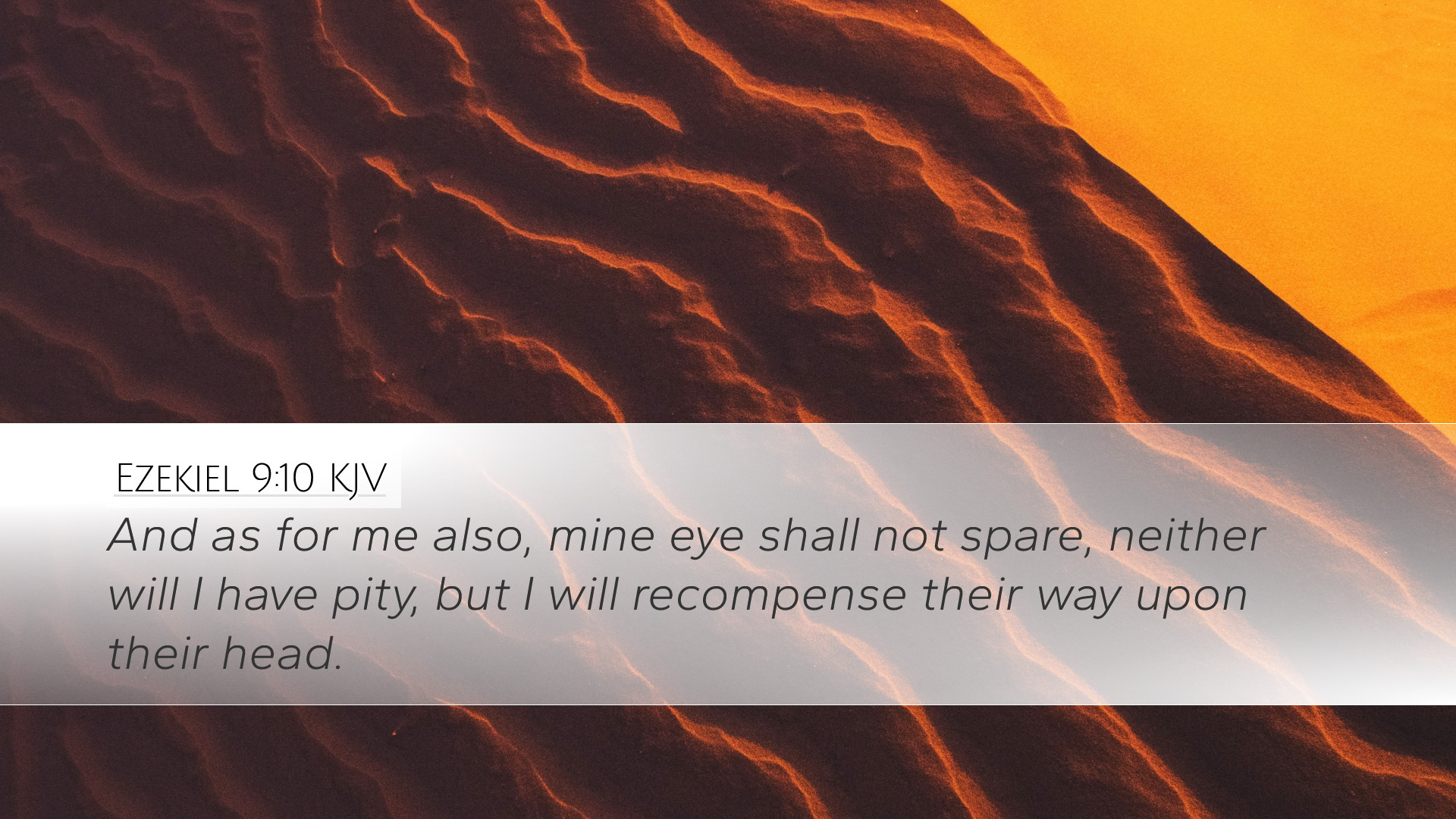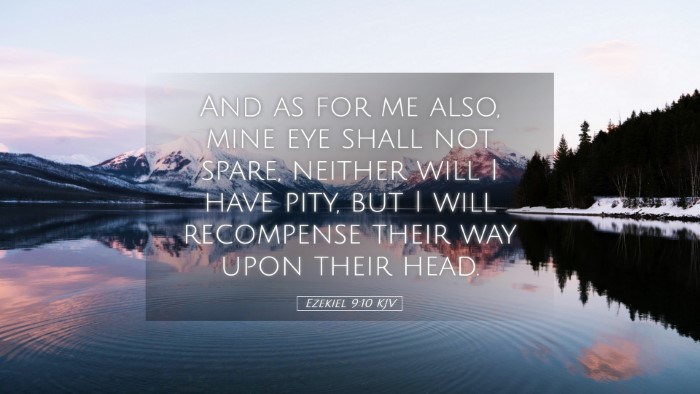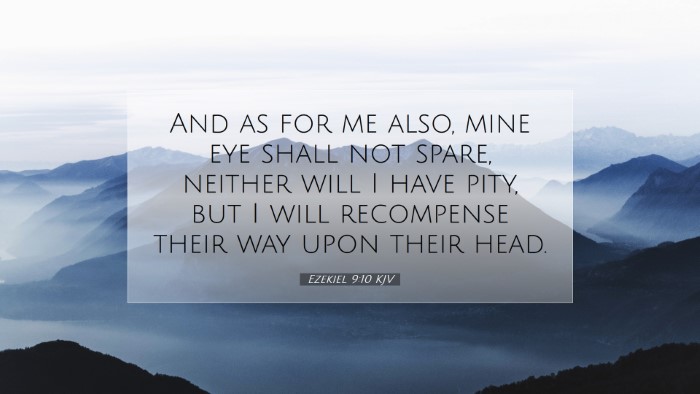Commentary on Ezekiel 9:10
Ezekiel 9:10 states, “As for me, My eye will not spare, nor will I have pity; but I will bring their conduct upon their heads.” This verse occurs within a vision of divine judgment where God’s response to the iniquities of Israel is articulated.
1. Contextual Background
The Book of Ezekiel is set during a critical period for Israel, marked by the Babylonian exile. The prophet Ezekiel, called as a priest and prophet, receives a series of visions from God that highlight both the sinfulness of the people and the subsequent judgment that must befall them. This particular chapter is part of a larger narrative that depicts the cleansing of the defiled city of Jerusalem, indicating a purging of iniquity.
2. The Judgment of God
The phrase “My eye will not spare” indicates a complete detachment from any merciful intervention. According to Matthew Henry, this reflects the severity of God’s justice; His holiness demands retribution for sin. The sin invites judgment, and God's righteous nature cannot overlook ongoing rebellion. Thus, His pity is entirely withdrawn as He prepares to enact just punishment.
2.1. The Meaning of 'Conduct'
The term “conduct” can also be described as actions or behaviors that defy God’s covenant. Adam Clarke emphasizes that what is being brought upon their heads is not merely punishment, but the consequences of their own actions. This principle points to a foundational truth in the theology of retribution—that individuals reap what they sow (Galatians 6:7).
3. Theological Implications
This verse underscores the balance between God's mercy and justice. While God reveals immense love and grace towards His people, this divine love is met with the demands for holiness, and sin brings about inevitable consequences. Albert Barnes reflects on how the judgment rendered emphasizes accountability. Every act of disobedience, every rebellion against God's laws, invites His righteous judgment, thereby reinforcing the accountability of each individual before God.
3.1. A Warning to the Wicked
The stark warning in Ezekiel 9:10 resonates profoundly for both ancient Israel and contemporary audiences. It serves as a caution not to presume upon God's mercy. Henry notes that there is a time when mercy is reflected upon, but a point is reached where justice must prevail. This divine pronouncement continues to reverberate through Scripture, indicating that there is a limit to the patience of God regarding sin.
4. Practical Application
For pastors, students, and theologians, Ezekiel 9:10 offers rich material for reflection and teaching:
-
Examination of Conduct: Leaders are reminded to instruct their congregations on living in accordance with God’s commands. Regular self-examination can prevent spiritual stagnation.
-
The Role of Mercy: Understanding the character of God involves recognizing that His mercy is always available but not exploited. Barnes encourages an ethical lifestyle rooted in gratitude for God’s grace.
-
Inclusivity of Divine Justice: Justice is impartial; it applies to all without favoritism. Clarke urges that this truth should inspire feelings of reverence and engagement with God’s commands.
-
Consequences of Sin: Regularly teaching on the ramifications of sin can bring clarity and urgency to the message of reconciliation through Christ.
5. Conclusion
Ezekiel 9:10 is a striking proclamation of divine judgment that sets the stage for deeper theological discussion. Its message regarding accountability, divine justice, and the seriousness of sin must resonate in the hearts of believers. Matthew Henry concludes that God’s justice does not negate His mercy but rather complements it, for without justice, mercy would have no meaningful application. Understanding this balance equips the church to more faithfully represent God's character in a world eager for grace yet often dismissive of the gravity of sin.


